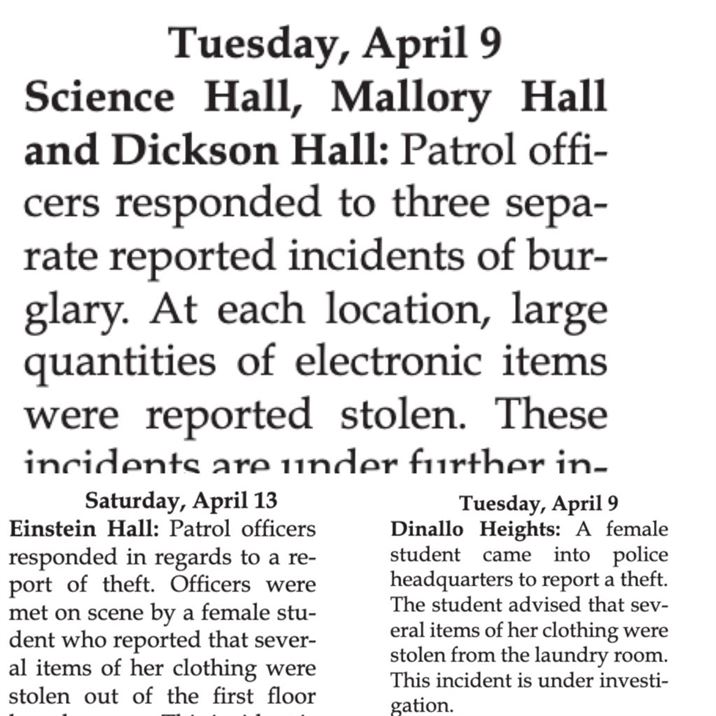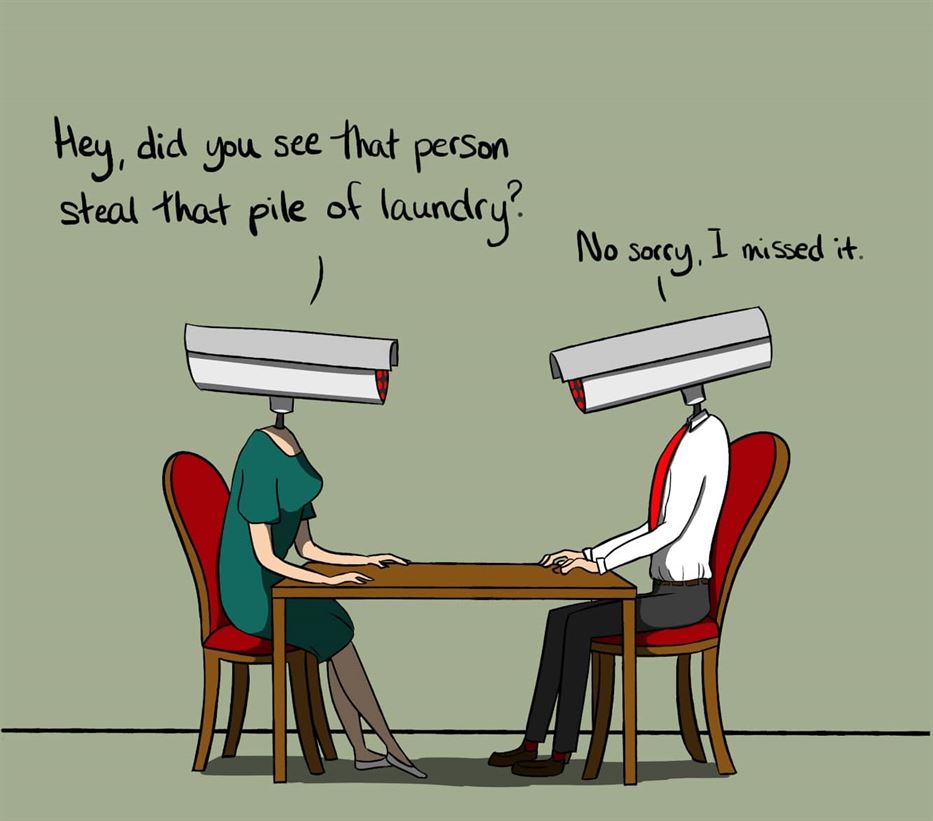As children, many students at Montclair State University have learned there are consequences for the decisions they make. If someone shared their cookies at snack time, that person would have probably been shown some appreciation for their actions. If they took their classmate’s lunch money because it fell on the ground, there were usually negative consequences that would follow.
As these students grew up, they were expected to take these moral and social life lessons and apply them in real situations. If a person drops their wallet as they’re walking to class, a bystander is expected to pick it up and give it back to them. If a person left their clothes in the dryer long after it’s done, someone else who is waiting should be respectful and not touch or steal it.
Unfortunately, many of these scenarios don’t always end the way they should, and sadly, many of the people who are responsible get away with their wrongdoings. The main reason for this is because the Montclair State community is too big to monitor every little crime on campus and most of these offenses are not violent and do not require immediate attention.
As a result, the number of non-violent crimes continues to grow at Montclair State because students believe that they can get away them. Now more than ever, they need to be reminded of these childhood life lessons.
Did you know a four-year student bicyclist on a college campus faces a 53% chance of losing their bike to theft? While we do what we can to prevent this follow these tips to help:
Register your bike
Be smart with how you lock your bike
Park in IUPUI designated bike racks
🚴♀️— IUPUI HRL (@IUPUIHRL) September 10, 2018
Signs of the increasing theft numbers can be seen in the print issues of The Montclarion. Each week in the News section, there is the Red Hawk Rap Sheet, which lists some of the crimes committed on campus throughout the week. These crimes are given to us from University Police Department (UPD).

A collage of clippings from the April 18 issue of The Montclarion are pieced together. The clippings are about thefts on campus.
Rebecca Serviss | The Montclarion
After each issue published, there are more crimes involving theft that are reported, from stealing video and lab equipment, to clothes in residence hall laundry rooms, to wallets and other personal belongings.
Many people blame these incidents on the lack of security cameras in buildings, which could help monitor locations that are prone to thefts, like residence hall laundry rooms, lounges, computer and science labs and other public locations around campus.
Security cameras are great tools to pinpoint the location, date and time that these incidents happen, but people should not solely rely on them to catch thieves because they are not always the best at identifying suspects.
Identifying suspects is one of the hardest parts when dealing with nonviolent crimes. There is a lot of information that is needed in order for a thorough investigation to take place. In many of these cases, security cameras are not enough.
https://twitter.com/lauren_hikari/status/1119086694207082496
While the Montclair State community is thankful for the work that UPD does when it comes to these incidents and helping students who have been victims in crimes on campus, there are also measures the campus community can take to keep their and other people’s personal belongings safe and in the right hands.
Students, faculty and staff should never leave their bags, equipment and other belongings unattended. While there are some security cameras scattered around many buildings on campus, it is not guaranteed that these devices can catch every action in the room.
Reminder to all students and staffs: to prevent theft please do not leave your personal belongings unattended at all time while on campus. Long Beach City College. pic.twitter.com/DItbFvrh2B
— LBCC Police (@LBCCPolice) February 27, 2019
Most importantly, just do the right thing. If you see a wallet, cellphone, computer or camera lying out on a table, turn it in to the lost and found or UPD. It may seem like these actions go unrecognized, but there are so many students and faculty who truly appreciate these small deeds.
Their gratitude might not be shown physically, but just the feeling that there are people on this campus who truly care about their peers is what really matters in the end.



